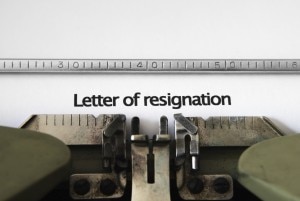
So, you’ve been successful in your job application and are looking forward to starting work. Use the time in between wisely and you’ll arrive for your first day ready to get cracking straight away.
1. What’s the dress code?

There may be no formal dress code for work but you’ll have got a good sense of what people are wearing around the office and in the department where you’re starting out when you went for the interview. If there’s an actual uniform, then this simplifies matters but if in doubt, err on the side of formal.
2. How do I get there?
You may have arrived at the interview by car but plan to travel to work on public transport – or vice versa. Be sure to plan your route carefully (a dummy run can’t hurt) especially if the journey involves a change or perhaps two modes of transport. The last thing you want is to arrive late on your first day. If you plan to cycle, make sure that there are facilities at work where you can shower and change – and lock up your bike securely.
3. Where can I park?
There’s the old joke about the new employee who took the bosses parking space on the first day. Make sure that isn’t you by finding out where you’re allowed to park, how to find the car park and any special requirements – like a passcode – you’ll need to get in.
4. Have I got my paperwork?
 It’s likely your new employer will need you to present certain documents when you arrive on the first day. Typically these will include things like passport, National Insurance card, driving license, proof of address (something like a recent bank statement is fine) and a P45. If this is your first job you won’t have a P45, so don’t worry about it.
It’s likely your new employer will need you to present certain documents when you arrive on the first day. Typically these will include things like passport, National Insurance card, driving license, proof of address (something like a recent bank statement is fine) and a P45. If this is your first job you won’t have a P45, so don’t worry about it.
5. What’s my story?
What’s my story?As the new person on the block, people are going to come up to you and ask you about yourself – or you’ll be going up to them and introducing yourself. Without writing anything down, make sure you can summarise your career to date, what brought you to the company – perhaps even a bit about your personal life – so you have something to say.
6. Remember me?
If you’ve accepted a job that doesn’t start for a few weeks – or even a few months – make sure you don’t drop off the company’s radar entirely. Drop Human Resources an email or give them a quick ring every week or so to remind them you’re still there, still looking forward to starting and will be there, raring to go on day one. This helps reassure a company that they made the right decision when they offered you the job.
7. What’s been happening?
 If there’s been a gap between being offered the job and actually starting (you may have had to give notice to your previous employer, for example) make sure you keep up to date with company news by checking the relevant website. In a fast-paced environment, things can change quickly and while the fundamentals of what a company does won’t alter in a matter of weeks, there may be some important organisational shifts that will impact you, so it’s a good idea to stay abreast of company news. The main website is a good source of information for this and all manner of other stuff (we regularly post news of new job opportunities at Enterprise on our site, for example) but don’t neglect social media either. These days you’re just as likely to find out what’s really happening by checking Facebook, Twitter and Linkedin.
If there’s been a gap between being offered the job and actually starting (you may have had to give notice to your previous employer, for example) make sure you keep up to date with company news by checking the relevant website. In a fast-paced environment, things can change quickly and while the fundamentals of what a company does won’t alter in a matter of weeks, there may be some important organisational shifts that will impact you, so it’s a good idea to stay abreast of company news. The main website is a good source of information for this and all manner of other stuff (we regularly post news of new job opportunities at Enterprise on our site, for example) but don’t neglect social media either. These days you’re just as likely to find out what’s really happening by checking Facebook, Twitter and Linkedin.
If you’re still looking to make your next career move, then we could have the right graduate job or internship opportunities for you.
